“On the eve of Christmas, China’s Christians are once again under attack,” says The Australian. CBS News says “Chinese Christians are risking arrest to practice their faith.” Doing some research for my posts, these are the first results I got from search engines.
I have no doubt there are Christians as well as other religious population and political dissidents being persecuted in China, and I want to report on those Christians who are being abused. But I have also met a few Chinese Christians on Christmas eve, and have celebrated the occasion with thousands of them. Here are what I saw and heard.
(Because I have not asked for permission to publish my conversations with them and their photos, for the reason that a formal interview might make some withdraw from sharing, I will only use aliases.)
Sister Anne is a nun at one of Hangzhou’s convents. Her parents and grandparents are all Catholics. She decided to devote her life to God at a young age, and has been at the convent for decades. She was at Hangzhou Catholic Church yesterday, sitting behind a table piled with pamphlets and answering questions to those who are curious (of those, there are many).
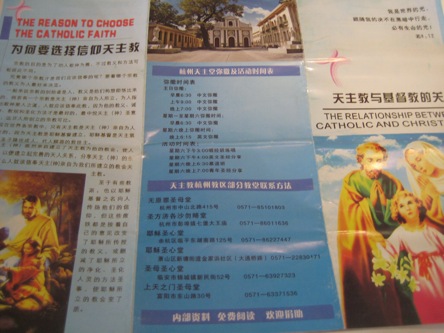 (one of the pamphlets)
(one of the pamphlets)
I asked her if she has ever been harassed by the government. She said there is practically none. She is content about her situation, especially when she thinks about some of the older nuns who had to go through more difficult times.
“I admire them for their perseverance. For me, things have always been trouble free, and all I need to do is to do my work. I have not been tested as they have.”
I asked her about underground church. She answered with her usual warmth: “Christianity teachings says you should love God, love others, and love your country. There is nothing contradictory between loving God and loving your own country.”

During mass, I sat between two older ladies. One is in her 50s. Her grandmother was a devote Christian, and she has been baptized when she was several years old. She has been coming to church during important holidays and occasionally attending Sunday masses.
The other lady is also in her 50s and looks more like someone from the countryside, with her cheeks red after years of working outdoors. Sure enough, she is from a neighboring county and she told me to visit her church, which is just renovated.
Her family has been Christians for generations, and she grew up Christian. During the Cultural Revolution, she said all the priests were tied up and marched around town to be humiliated. One priest was tortured to death.
“Did you pray at home?” I asked.
“No, you dare not to. If other people see you praying, they will tell others,” she answered.
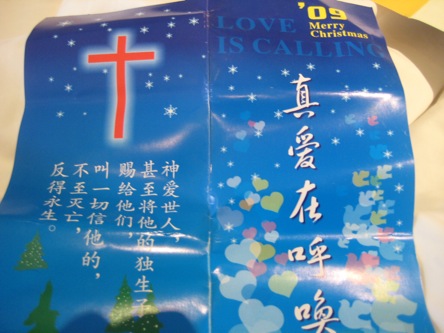
I also talked to two young people. A young woman who works at a hospital was brought to the church by her Christian friend. She says she knows nothing about Christianity, and doesn’t even know the difference between Ji Du (Christ) and Ye Su (Jesus).
Her question is answered, that Jesus is the name of the Son of God, and Christ is a respectful title specifically used to refer to Jesus. She took some pamphlets and walked away looking puzzled.
Henry is a consultant working in Hangzhou. In his early 20s, he was first brought to the Catholic Church this Easter by an American friend, who is a Catholic. For reason he does not know, he could not hold back his tears during the whole service. He soon started taking classes at the church, and has decided to be baptized soon, probably around next Easter.
The biggest hurdle he has to overcome to fully accept Catholicism is to accept Mary as a deity. But with Rome changing its stance on the issue, that barrier is cleared.
I asked him if he or anyone he knows have been harassed by police because of their faith. He pointed to a side room, “look in there, cops are in that room to keep order here tonight because there are so many people. This is the only time I’ve seen their presence.”
I later went to the side room and saw six or seven policemen, some in uniform and mostly not, sitting around a table, watching TV while eating sunflower seeds and oranges.
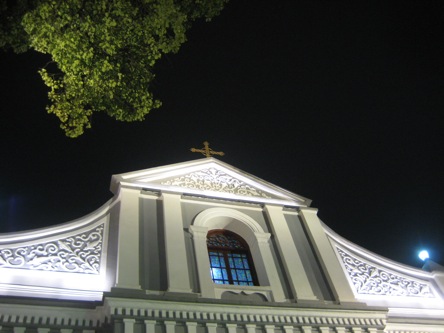 Hangzhou Catholic Church
Hangzhou Catholic Church
From the little I have seen so far, I dare to make a hypothesis. After all, the establishment of a research question is the first step in any query to gain new knowledge.
So here are my hypotheses.
- The absolute majority of today’s Chinese Christians can practice their faith freely. (Otherwise, how can one explain the exponential growth of Christian population?)
- Persecution of Christians are done only when they are engaged in activities that threaten the Chinese government, such as trying to erode power of China’s official church, establishing vast networks that could potentially harm social stability, or mixing Christian organizations with other political and social movements.
I will conduct more on-the-ground research to see how valid these hypotheses are, but will always keep an open mind to explore other topics.
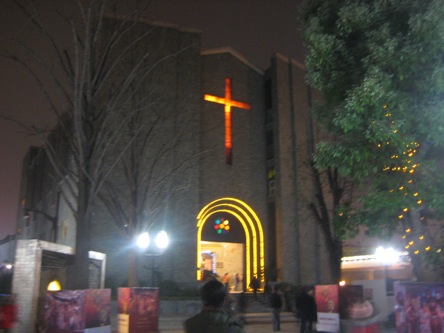
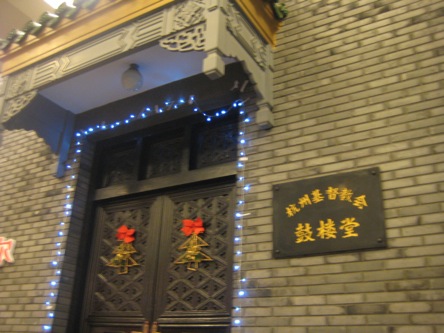
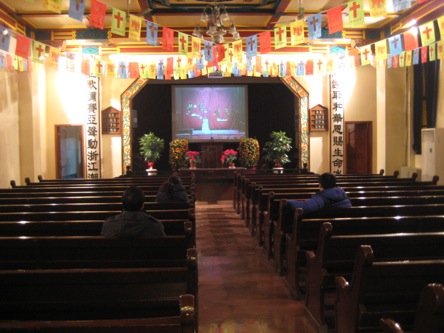
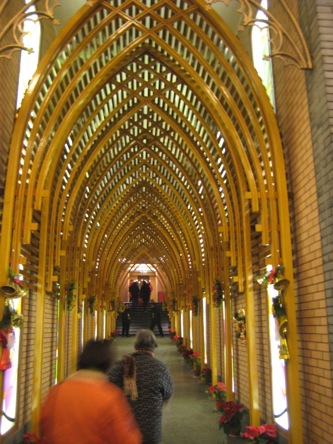
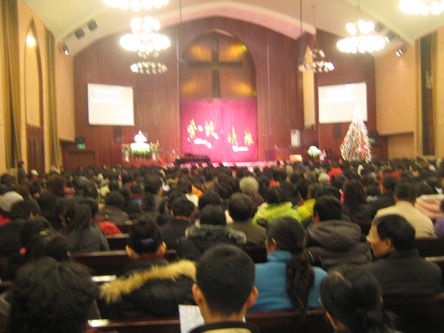
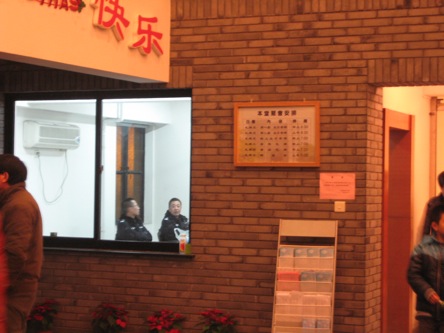
 (one of the pamphlets)
(one of the pamphlets)


Recent Comments